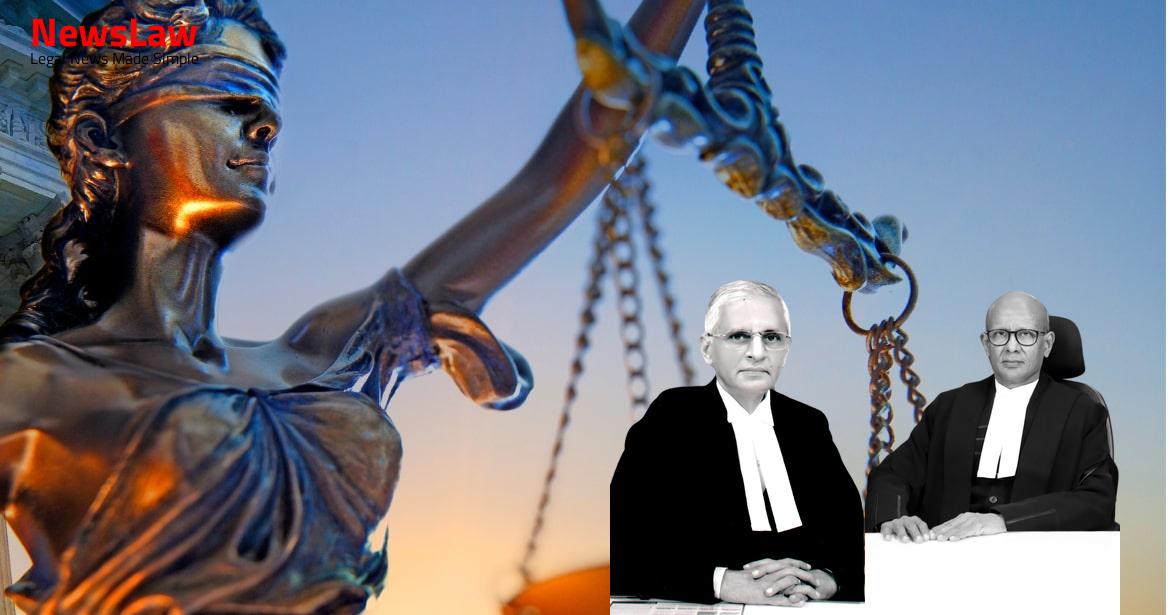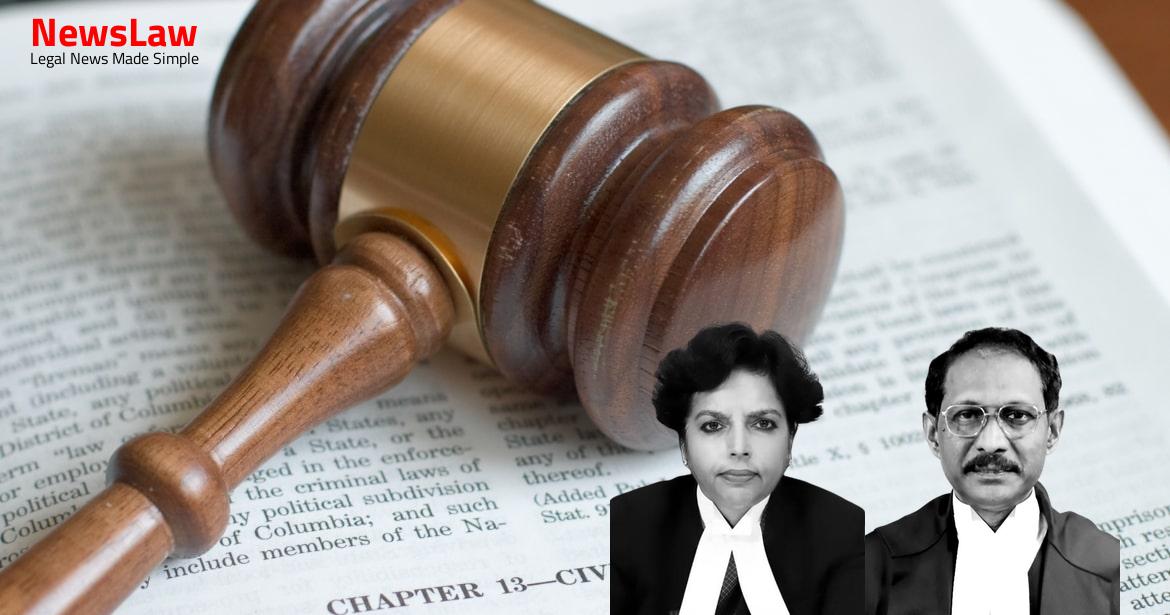In a landmark judgment by the Supreme Court of India, the case of Jagdishchandra v. Joint Charity Commissioner & Ors. has been decided. The court upheld the acceptance of Change Report Nos. 899 of 2015 and 1177 of 2017. This case centered around the succession and administration of the Shri Mallikarjun Devasthan Trust, with Jagdishchandra at the helm. Let’s delve into the details of this significant legal ruling.
Facts
- The ground of delay in filing a Change Report after the death of Ashok Mallikarjun Patil was raised for the first time, with Jagdishchandra taking over after Ashok’s death.
- The mode of succession for managership and trusteeship of the Trust was outlined, with Mallikarjun Mahalingappa Patil being the Vahiwatdar and the eldest male member of his family to succeed him.
- Ashok Mallikarjun Patil, the eldest son of Mallikarjun Mahalingappa Patil, died issueless, leading Jagdishchandra to take over as Vahiwatdar despite not being the eldest male member.
- The Assistant Charity Commissioner deemed the Change Report acceptable, subject to a pending revision filed against it.
- Facts related to the registration of Shri Mallikarjun Devasthan, Shelgi, as a Public Trust under the Act of 1950 were reviewed.
- Appeals and revisions were filed challenging the acceptance of Change Reports, with the High Court eventually validating the registration of Shri Mallikarjun Devasthan as a Public Trust.
- Revision Application No 61 of 2017 regarding Change Report No 899 of 2015 was dismissed, confirming Jagdishchandra as Vahiwatdar of the Trust.
- Jagdishchandra was granted the right to co-opt Trustees for the Trust.
- The existing administration led by Jagdishchandra and his nominated Trustees was permitted to continue administering the Trust as per the law.
- The directive was to maintain the current position of administration as of the judgment date.
Also Read: Legal Analysis: K.B. Lal vs. Gyanendra Pratap & Ors. – Condonation of Delay in Civil Appeal
Analysis
- The first proviso to Section 22(2) allows for a provisional acceptance of changes in names and addresses of Trustees and Managers, with a notice inviting objections within thirty days.
- Section 70A(1) empowers the Charity Commissioner to examine the records and proceedings of cases before Deputy or Assistant Charity Commissioners to ensure correctness of findings or orders.
- The Act of 1950 was amended in 2017, adding a proviso to Section 22(1) for reporting changes in entries within 90 days.
- The second proviso to Section 22(2) states that if no objections are received within thirty days, the order accepting the change becomes final.
- The third proviso allows for an inquiry if objections are received, and the finding can be appealed to the Charity Commissioner.
- Section 70 provides for appeals against findings or orders of Deputy or Assistant Charity Commissioners.
- Section 22(3) details the procedure for the Deputy or Assistant Charity Commissioner to record findings after an inquiry.
- Section 41D allows for suspension, removal, or dismissal of Trustees by the Charity Commissioner under specific grounds.
- Sections 18 to 21 outline the process for registration of Public Trusts and the powers of Deputy or Assistant Charity Commissioners in making inquiries and recording findings.
- Section 22(1) prior to 2017 required Trustees to report changes in entries to the Deputy or Assistant Charity Commissioner within 90 days.
- Delay in filing a Change Report can be condoned if sufficient cause is shown, as per the proviso added in Section 22(1) of the Act of 1950.
- Failure to file a Change Report within 90 days does not automatically invalidate the assumption of office by a Vahiwatdar of a Trust.
- It is not mandatory to file a written application for condonation of delay, oral requests can also be considered if sufficient cause is shown.
- The delay in filing a Change Report does not nullify the changes in the Trust if the authority concerned is satisfied with the cause shown for the delay.
- Dismissal of Revision Application No 61 of 2017 by the Joint Charity Commissioner was upheld due to lack of objection against the delay condonation order.
- Objectors to changes in the Trust can seek recourse under the Act of 1950 for any failure or delay in filing Change Reports.
- Courts should adopt a liberal, pragmatic, justice-oriented approach
- Condonation of delay should be considered to remove injustice
- Courts are not meant to legalize injustice
- The delay in the submission of the first Change Report had no significant impact on the Trust’s actual change
- The High Court Judge at Bombay’s emphasis on the delay was considered overly technical
- The delay was deemed a curable defect and did not significantly affect the case
Also Read: Liability for Employee Actions in Contractual Disputes
Decision
- Acceptance of Change Report Nos. 899 of 2015 and 1177 of 2017 confirmed.
- Parties to bear their own costs.
- Pending applications, if any, to stand closed.
- Both civil appeals allowed.
- The High Court judgment in Writ Petition Nos. 8570 and 8571 of 2019 set aside.
Also Read: Supreme Court Upholds Rejection of Plaint Under Order VII Rule 11 of CPC: A Critical Analysis
Case Title: MALLIKARJUN DEVASTHAN SHELGI Vs. SUBASH MALLIKARJUN BIRAJDAR (2024 INSC 339)
Case Number: C.A. No.-005323-005324 / 2024



